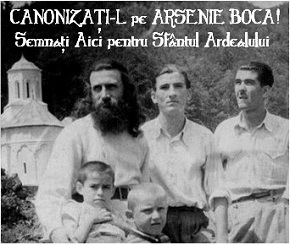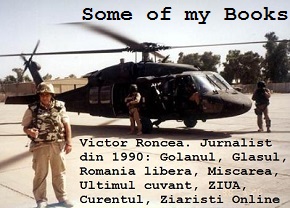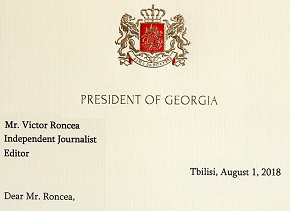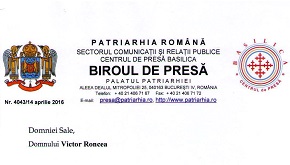Sinteza in romana si analiza integrala in original, mai jos
Reţinerea unui diplomat român la Moscova pentru spionaj arată rolul durabil jucat de serviciile de informaţii din statele est-europene în urmărirea intereselor lor de politică externă, în condiţiile creşterii competiţiei în regiune între Occident şi Rusia, comentează agenţia americana de analiză si informatii STRATFOR.
Sinteza Mediafax: Gabriel Grecu, secretar I la ambasada României de la Moscova, a fost reţinut la 16 august pentru spionaj şi declarat persona non grata, determinând autorităţile de la Bucureşti să expulzeze, la rândul lor, un diplomat rus. Presupusul ofiţer român de informaţii a fost deconspirat de una din sursele sale din Rusia şi, deşi există informaţii contradictorii privind capturarea sa, datele căutate de acesta erau în acord cu interesele geopolitice ale României, precizează STRATFOR.
Înainte de arestarea sa, Grecu ar fi cerut sursei sale din Rusia să îi ofere informaţii militare privind Republica Moldova, regiunea separatistă Transnistria şi oblasturile ucrainene Cernăuţi şi Odesa, ele reprezentând priorităţi ale serviciilor de informaţii române, care se tem de creşterea influenţei ruse în regiune. Aşezarea Republicii Moldova între Munţii Carpaţi şi Marea Neagră face din această ţară un teren “strategic” de disputare a puterii, fie că este vorba despre Rusia, care încearcă că îşi sporească influenţa în Balcani, fie că este vorba despre România, putere europeană, care “îşi proiectează influenţa în teritoriul rus”, potrivit STRATFOR. (Nota mea: Sinteza Mediafax lasa de dorit. Aplicarea ghilimelelor doar asupra cuvantului strategic da o cu totul alta conotatie. In original: Moldova’s location in between the Carpathian Mountains and the Black Sea (historically referred to as the Bessarabian Gap) makes it a strategic battleground for power projection, whether that means Russia attempting to gain a foothold in the Balkans or a European power, such as Romania, projecting its influence into the Russian heartland.)
De asemenea, informaţiile despre Ucraina sunt deosebit de valoroase, în condiţiile în care Rusia şi Ucraina au emis recent o declaraţie comună în care anunţă că vor coopera în vederea soluţionării problemei transnistrene. În replică, potrivit STRATFOR, preşedintele român Traian Băsescu declarase recent că Bucureştiul se va folosi de comunităţile de români din vestul Ucrainei pentru a face presiuni asupra Kievului, în legătură cu conflictul transnistrean.
Potrivit agenţiei de analiză, este posibil ca raportul FSB referitor la deconspirarea lui Grecu de către contactul său rus să ascundă de fapt adevăratele surse şi metode folosite de ruşi pentru a-l identifica pe român, cum ar fi o sursă umană sau interceptarea. De asemenea, această poveste ar putea acoperi un agent rus infiltrat în cadrul serviciilor de informaţii române, care ar fi alertat Moscova în legătură cu activităţile presupusului spion român. Este posibil şi ca sursa din Rusia a lui Grecu să fi reprezentat de fapt o modalitate a Moscovei de a prinde în capcană ofiţeri români sub acoperire.
Având în vedere istoria României, de fost satelit sovietic, agenţii români de spionaj au fost antrenaţi de KGB, iar serviciile ruse de informaţii au surse infiltrate adânc în interiorul multor agenţii de spionaj est-europene, inclusiv din România. “Deşi mulţi români şi cetăţeni din statele învecinate se declară împotriva ruşilor, mulţi au cooperat strâns cu sovieticii în timpul Războiului Rece şi după această perioadă, iar aceste relaţii implică faptul că există localnici mai mult decât suficienţi, dispuşi să servească interesele Moscovei”, apreciază STRATFOR.
Aceste arestări şi expulzări reciproce de suspecţi de spionaj între Rusia şi România probabil că nu se vor opri în curând şi ar putea chiar să devină mai frecvente , în condiţiile unei intensificări a competiţiei între Occident şi Rusia pentru extinderea influenţei în Europa de Est, în special în ceea ce priveşte Republica Moldova, conchide agenţia de analiză citata de Mediafax.
A worker at the Romanian Embassy in Moscow was arrested Aug. 16 on espionage charges, prompting Bucharest to expel a Russian diplomat from the country. The purported Romanian intelligence officer was turned in by one of his Russian sources, and while conflicting reports have emerged on how he was caught, the information the agent sought was consistent with Romania’s geopolitical interests. This incident underscores the longtime role that intelligence and security apparatuses have played in Eastern European states’ pursuance of their foreign policy aims. As competition over the region between the West and Russia intensifies, an increase in activity of this type is likely.
While little independent evidence has emerged on the case, the basic facts put forth by the FSB on the purported Romanian officer fit with the usual intelligence-gathering methods of Eastern and Central European intelligence agencies. The information sought by Grecu is consistent with established Romanian geopolitical interests, and as competition over the region between the West and Russia intensifies, we are likely to see arrests and expulsions of this type increase.
Grecu, according to the FSB, took over handling the unidentified Russian citizen from a Romanian diplomat named Dinu Pistolea, who had recruited the supposed source and held the same position in the Romanian Embassy as Grecu until December 2008. The FSB claims to have been monitoring Pistolea beginning sometime that year and, following the transition, continued to monitor Grecu. The FSB said the Romanians began their interactions with the Russian citizen by requesting open-source information, the type of unclassified information widely available to the public on the Internet and elsewhere. (This is typical of the intelligence recruitment process as well as something intelligence officers will still seek out in addition to classified information, as seen in the recent U.S.-Russian spy case.)
Komsomolskaya Pravda, a tabloid with strong ties to the government, quoted an unnamed source saying the Russian informant communicated with his handlers using code words within e-mails. Information was then passed using coat-check rooms in various Moscow supermarkets. There is no real need to pass unclassified and non-sensitive information using clandestine means, and if these reports are true, this was likely part of the initial phase of the recruiting process, intended to build trust between source and handler as a prelude to trading more sensitive information — a process known in intelligence parlance as the “little hook.” The Russian, if not completely recruited by this point, would have known he was doing something questionable, if not illegal. The FSB claims Grecu’s Russian source contacted the agency when Grecu asked for state secrets, and the source realized that by obliging the request he would be committing treason. But it is also possible that the FSB’s story of the reluctant, patriotic Russian was used to cover up the real sources and methods the Russians used to identify Grecu, such as an operation involving a human source or signals intelligence.
Sometime before his arrest, Grecu reportedly asked his Russian source for military information on Moldova, its breakaway region of Transdniestria and Ukraine’s Chernivtsi and Odessa oblasts, intelligence priorities for Romania as it fears growing Russian influence. Moldova’s location in between the Carpathian Mountains and the Black Sea (historically referred to as the Bessarabian Gap) makes it a strategic battleground for power projection, whether that means Russia attempting to gain a foothold in the Balkans or a European power, such as Romania, projecting its influence into the Russian heartland. Both Russia and Romania have been trying to get an upper hand in the crucial tiny country, with the Moldovan government currently in deadlock between a pro-European coalition and the Russian-backed Communists. (Romanian intelligence is widely believed to have been involved in the 2009 overthrow of the Moscow-backed Communist government in Moldova.) The information on Ukraine is especially valuable as Russia and Ukraine recently issued a joint declaration that their countries would work together to address the Transdniestria issue, and in response, Romanian President Traian Basescu recently stated that should Ukraine make a move for Transdniestria or Moldova, Bucharest would use the Romanian populations in western Ukraine to challenge Kiev. (Nota mea: Aceasta presupusa declaratie a lui Basescu, invocata de Stratfor, este inexacta. N-ar strica sa fie corectata la nivel oficial)
Not only would the intelligence purportedly involved in this case be a prime collection requirement for the Romanian officers, this case does seem to fit the typical recruitment process of the world’s major intelligence agencies, and the Romanians (as a former Soviet satellite state) were trained by the KGB. This history also means Russian intelligence has sources deep within many Eastern European services, including Romania’s. While many Romanians and people in nearby countries may be anti-Russian, many also worked closely with the Soviets during the Cold War and beyond, and those relationships mean there are more than enough locals willing to serve Moscow’s interests.
It appears that the FSB may have waited to arrest Grecu, choosing instead to put him under intensive surveillance in an effort to uncover all his sources in Moscow until they felt they had identified his entire network and there was no further value in letting him continue to operate. They also picked a time when Grecu was meeting with the agent and carrying “spying equipment” to make the case against him as strong as possible.
It is also quite possible that the FSB’s report of the Russian source turning Grecu in is a cover story to disguise a Russian agent within Romania’s services that alerted the Russians to Pistolea’s and/or Grecu’s activities. Alternatively, Grecu’s Russian source could have been planted to entrap the Romanian officers. Reports in Russian media conflict, with some saying the source was being a good patriot by turning in Grecu and another pro-government paper reporting that the source had been involved in clandestine communication methods. (It is routine for intelligence agencies to attempt to protect their sources and methods by manufacturing alternate explanations for how they learned something.)
These tit-for-tat arrests and expulsions of suspected intelligence officers between Russia and Romania are not likely to stop any time soon, and may in fact grow more frequent as competition between the West and Russia for influence in Eastern Europe, particularly Moldova, shows signs of increasing.
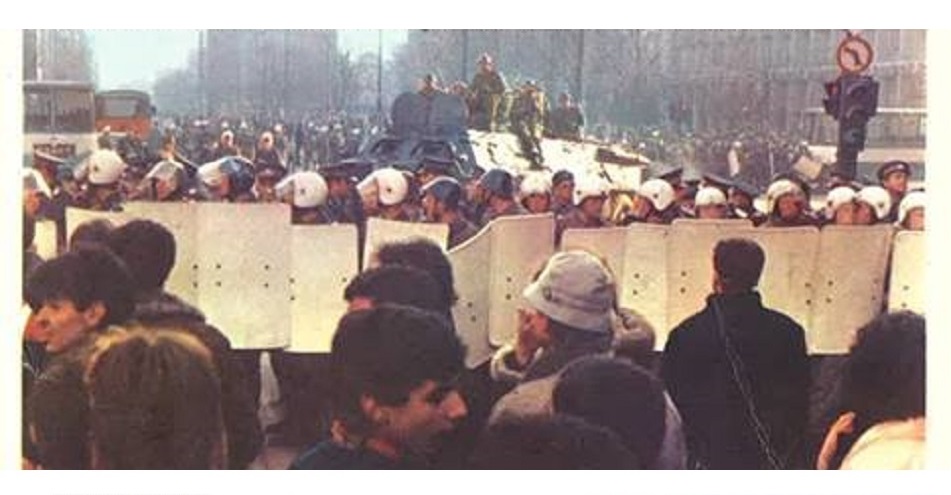
 August 19th, 2010
August 19th, 2010  VR
VR 

 Posted in
Posted in  Tags:
Tags: 






